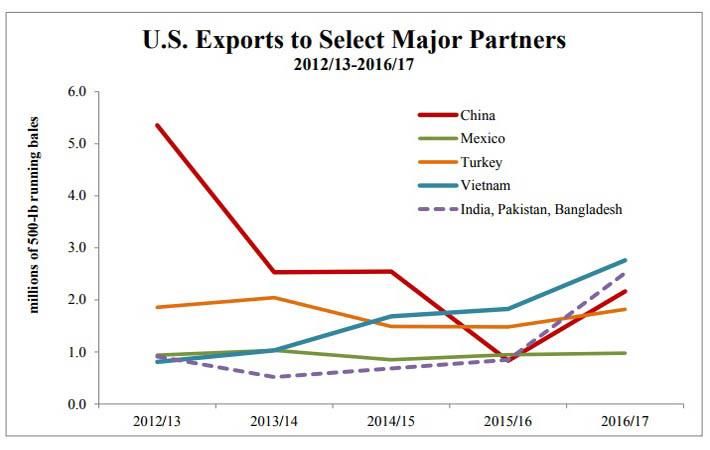
While upland cotton was the most exported totalling 14.3 million bales, the remaining 614,000 bales were of extra-long staple cotton, the Foreign Agricultural Service of the USDA said in its September 2017 report ‘Cotton: World Markets and Trade’.
“Both rising US crop estimates and rising global consumption helped account for this increase (in cotton exports”, the report said.
For the second year in a row, Vietnam was the largest importer of US cotton, and it imported nearly 2.8 million bales. As a result, the US market share in Vietnam rose to 50 per cent last year.
Exports to the Indian subcontinent also increased sharply, with India, Pakistan, and Bangladesh combined representing the second-largest US trading partner. Two years of smaller crops in Pakistan, high domestic prices in India, and extremely rapid growth in mill demand in Bangladesh all helped drive these high shipments. However, as production recovers in Pakistan and India, “it may be challenging for US exporters to maintain these levels of sales, although demand in Bangladesh is expected to continue to grow.”
China’s imports remained quota-constrained throughout the year and reserve sales introduced 14.3 million bales into private supplies. As the US market share in China recovers from the extremely low level seen in 2015-16, exports to China are expected to figure prominently in the upcoming year.
Exports to traditional US-led markets such as Turkey and Mexico did not show appreciable growth during the year. (RKS)
Fibre2Fashion News Desk – India